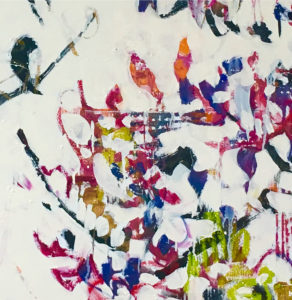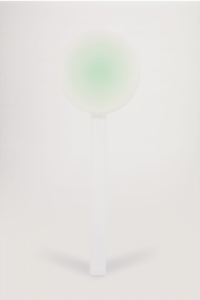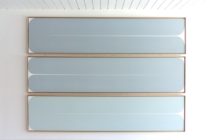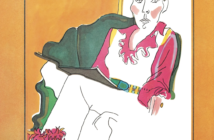Dear Artist,
Several recent emails have talked about mentoring. There are different approaches and I’ve tried a few of them. They range from “Show me, ’cause I’m going to be tough on you” to “Whatever you do is good, dear. Go for it.” After an analysis of someone’s work, degree of dedication and work habits, a wise mentor can simply opt to share technical knowledge. A loose time frame is handy. I’ve heard myself say, “Do a hundred small sketches and give me a call in a month.” Sometimes you never hear from them again.
Generally speaking, technical help works better than the woo-woo stuff. It’s been my experience that artist wannabes who inhale all the motivational books make little or no progress. In the mentoring game, practicalities win.
At the same time, a mentor needs to figure out how to stimulate creative curiosity. Fact is, mentees can be difficult, even self-sabotaging. Some respond badly to tail-wagging, others can’t get enough of it and become dependent. Abandonment of purpose happens with both approaches. For some mentees, a vacuum of attention after initial bombardment helps them to focus and carry the ball. Tough love balances raw empathy. Of all ploys, the mentor must encourage the mentee to state goals and aspirations. But mentors also must be aware that if goals are too closely set, the outcome is more likely to disappoint. Mentees have the right to change their minds.
Perhaps most important is to imply love. This means knowing that whatever a mentee may try, when done with love, can have levels of accomplishment and success. Historically, great mentors show love by example — love of process, love of possibilities. The effective mentor shows, not tells. It starts with the respect of individual vision — a solitude of equals. Simple, sincere praise, repeated, can cause a mentee to blossom. It’s quite magical. I call it “The Kiss of the Art Vampire.”
Still, it’s a delicate business and mustn’t leave lesions. Mentees can be hurt or impeded by inappropriate mentorship. Mentoring needs to be understood as a shared experience with payoffs for both parties. Drifting apart is part of the game. It’s important for the mentee, independent of influence, to name and claim his winnings. Generosity of spirit arises from a full and independent ego. That’s how mentees become mentors.
Best regards,
Robert
PS: “Art’s golden thread of mentors stretches not just into the ancient past, but also far into the future.” (Paul Soderberg)
Esoterica: “Mentee mentality” implies a period of rapid, wide-ranging absorption. We live in a time of second opinions. Art books — historical, biographical, instructional — have never been better. By typing “Cezanne” into “Google images” we can instantly see hundreds. While purposeful direction is valuable, artists, true citizens of the world, also need to avoid the cognitive hazard called “confirmation bias,” the tendency to search for or interpret information in a way that confirms one’s preconceptions.
This letter was originally published as “Delicate mentoring” on December 4, 2007.
Have you considered a Premium Artist Listing? With each letter, an artist is featured at the bottom of this page. The Premium Artist Listings are a means of connecting artist subscribers through their work. Proceeds from each listing contribute to the production of The Painter’s Keys.
“Love takes up where knowledge leaves off.” (St. Thomas Aquinas)
Featured Workshop
 Join Ellie Harold for “Intuitive Painting: Permission to Paint Expressively,” designed especially for mature women artists of all skill levels who wish to explore this medium for soulful exploration. The retreat provides attractive accommodations (your own room!) along with lightly structured activities for centering, relaxation and low stress art-making. You’ll have plenty of free time to muse, paint, write and reflect while enjoying the colors, textures and flavors of San Miguel. This Retreat has the potential to transform not only your art but your life! You’ll return home with a specific art “care plan” to assure support for further creating. Details at www.EllieHarold.com.
Join Ellie Harold for “Intuitive Painting: Permission to Paint Expressively,” designed especially for mature women artists of all skill levels who wish to explore this medium for soulful exploration. The retreat provides attractive accommodations (your own room!) along with lightly structured activities for centering, relaxation and low stress art-making. You’ll have plenty of free time to muse, paint, write and reflect while enjoying the colors, textures and flavors of San Miguel. This Retreat has the potential to transform not only your art but your life! You’ll return home with a specific art “care plan” to assure support for further creating. Details at www.EllieHarold.com.
Featured Artist
I am a landscape painter exposing the mystery in an ordinary day.








7 Comments
Robert’s piece is as fresh and as sound as it was when he wrote it. Not accomplished as a painter, I have been mentoring biology students for several years, on behalf of a foundation intended to support deserving students in their Honours year at my old university. Being 60 years behind these people it is indeed a challenge to do something useful for these bright people. My modest success so far results largely from applying much of Robert’s wisdom. Recommended reading for anyone in the mentoring game.
I’ve started teaching in the ceramics room I co-coordinate. Outside of a class dedicated to a specific form, I find myself mentoring certain keen individuals. I take a delicate approach, and try to mix instruction, demos, and just letting them explore material and techniques. I am watching more than they know. When I see hesitation, or frustration creeping in, I go over and check on their progress. Often a quick technique lesson, sets them happily on their path. Sometimes I give them a range of actions they can take with an idea of what happens next. A lot of mentoring is giving them permission to forget everything they’ve been told about what creativity is and letting them redefine it. Some people you have to talk them into trying new skills they think they can’t do, and others, you need to inform them they are shooting a bit far into the future. Everyone needs handling a bit differently, but the goal is always the same. They gain satisfaction from the process and insights from the results. Ceramics is special in that people have to learn to let go of end results because the kiln firing has the final say. If this was a paying job, I’d be the happiest of ceramicists <3
Your father’s view of the appropriate role of a mentor is very wise and truly helpful.
Just one thing: Mentor was a character in the Odyssey. He was a friend of Odysseus and an advisor to his son. He was not a person who “mented;” there is no such verb. Therefore, young Telemachus was a protege, disciple, or trainee, not a mentee. I know the dictionary now allows the noun mentee, but it really grates on the ears of a lover of classical literature.
I find Robert’s humorous molding of words to fit his message delightful. No matter how serious the message there is always a way to take parts of it lightly. Again, I am able to look back and assess my life of being a mentee over the past decades, and find really, many teachers who I don’t list as mentors. But they shared with me what they could, it was up to me to decide if there was anything there I found useful. Not all “teachers” are mentors. Especially the ones who panic when a mentee produces work that’s better than theirs. Not all teachers are their to teach out of sincere interest in helping fellow artists find their own artistic voice. This is why I have a very short list of mentors. Those are the ones who drove that message in saying, if you want this, you can do it.
So wise. I remember & treasure these comments from my mentor: ‘NOW you’re painting’; and when I was stomping around ‘that’s just part of you’re process-keep going’; and, when I was teaching & asked advice about a student with a unique approach, ‘leave her alone’. Love our mentors &’your keys. Thank you!
With deadlines piling up, I found myself in need of some extra help, so I decided to do my homework online through a reliable service. I was pleasantly surprised by the outcome! The team was professional and really understood the topics I needed assistance with. They delivered high-quality work that was well-researched and perfectly formatted, all within the timeframe I specified. This experience not only eased my workload but also boosted my confidence in my studies.
Over the years, the dino game has become a recognizable part of internet culture. Memes, fan art, and even physical merchandise have been created in tribute to the little dinosaur. The game is also used in coding tutorials, where students replicate its mechanics as a way to learn programming.